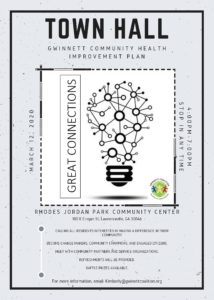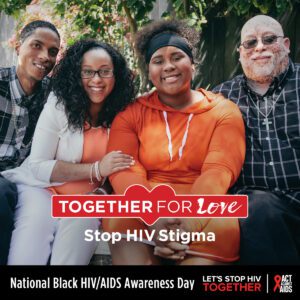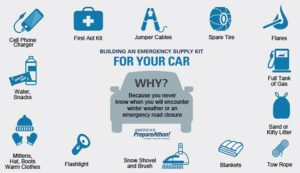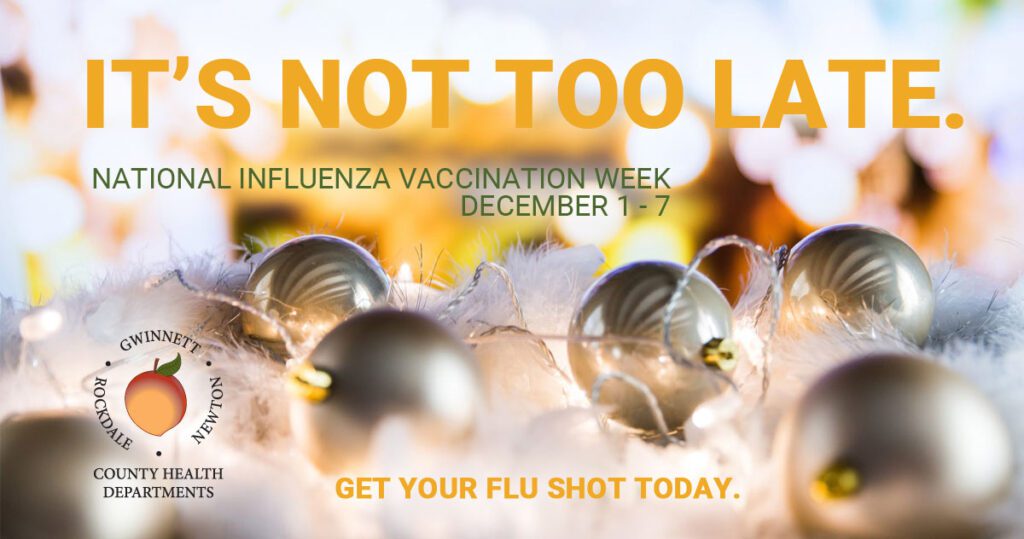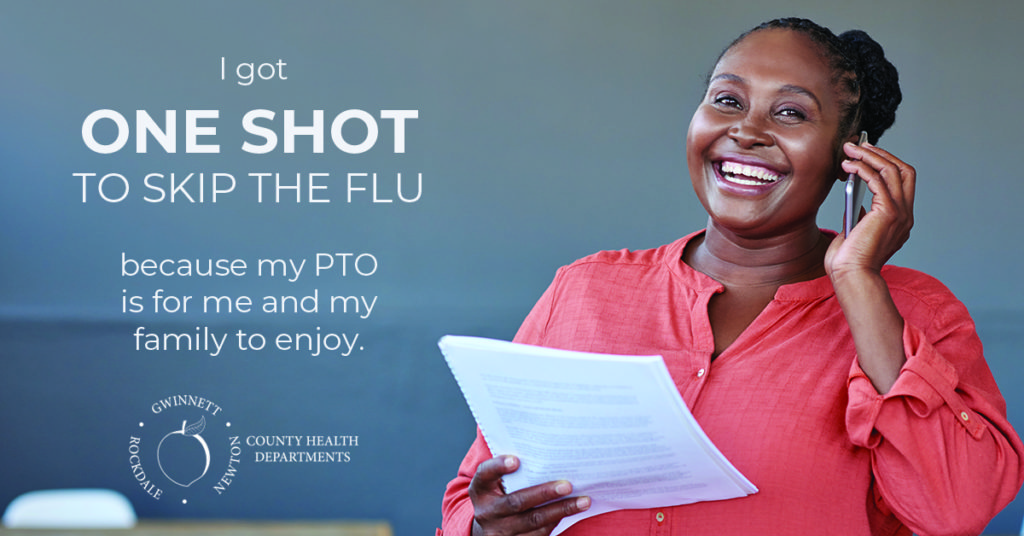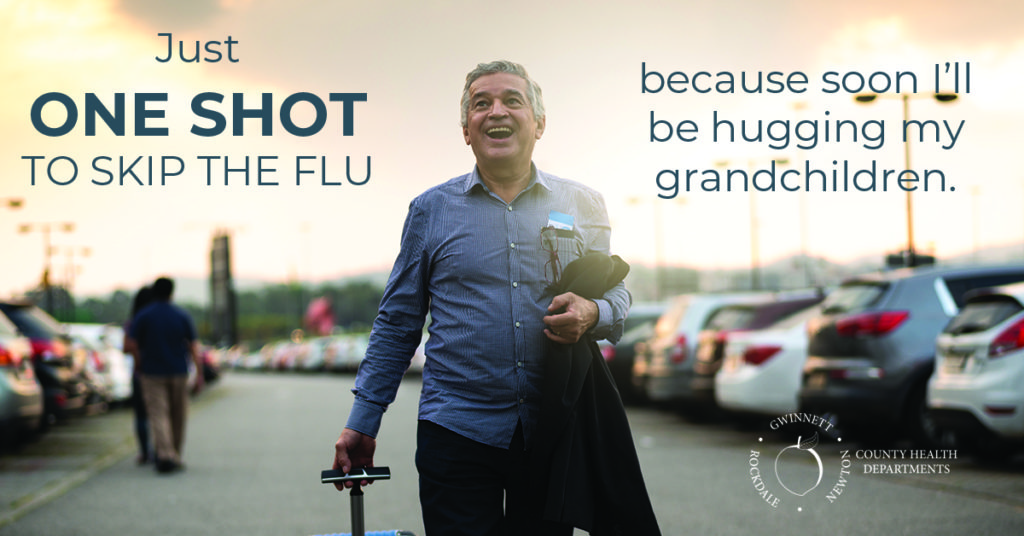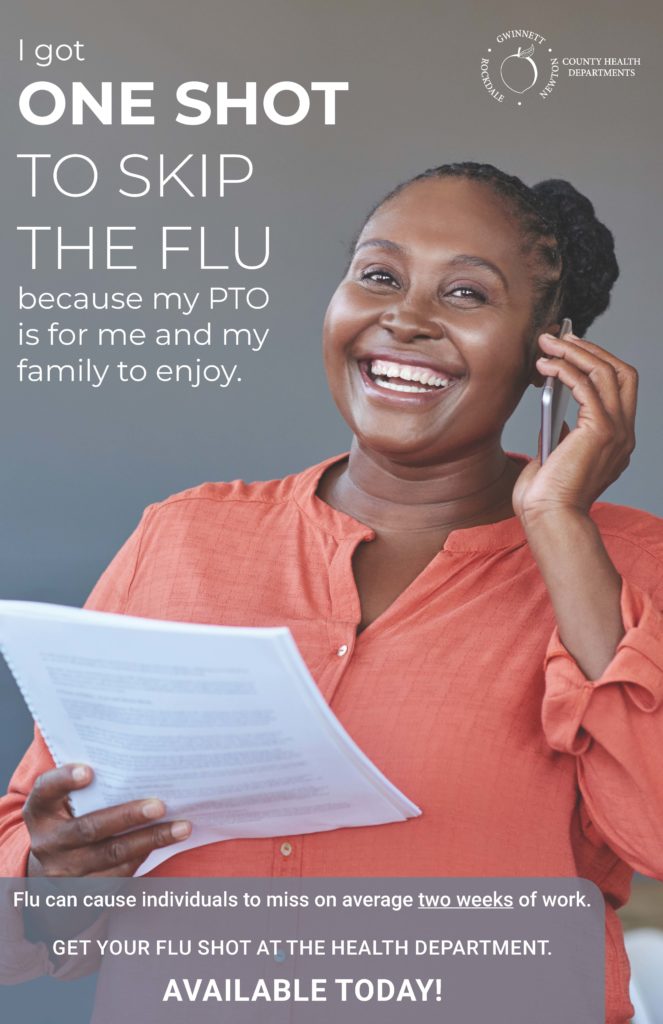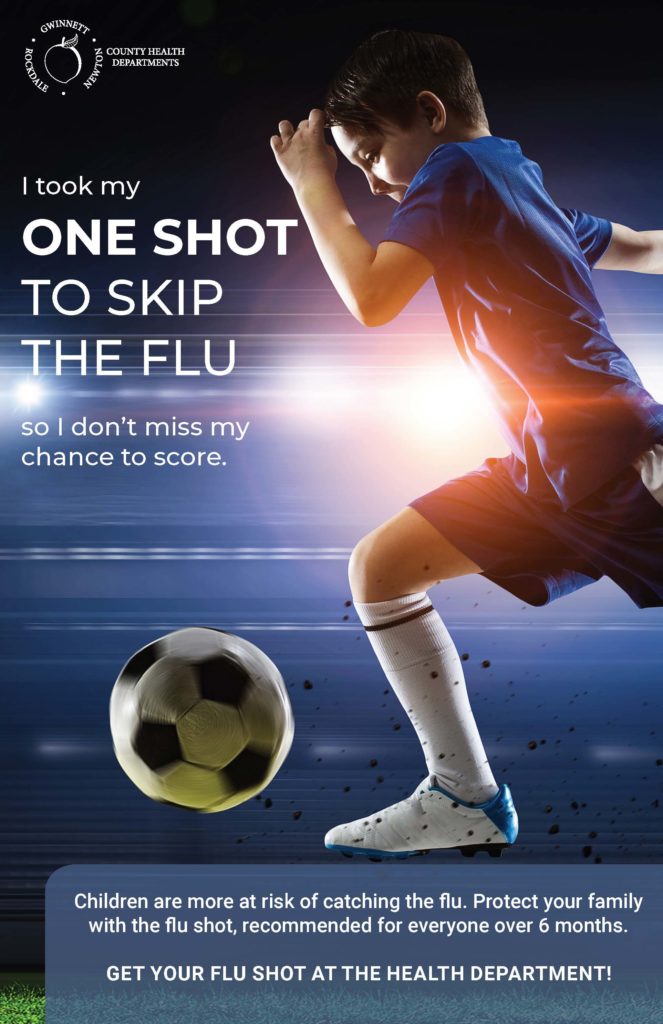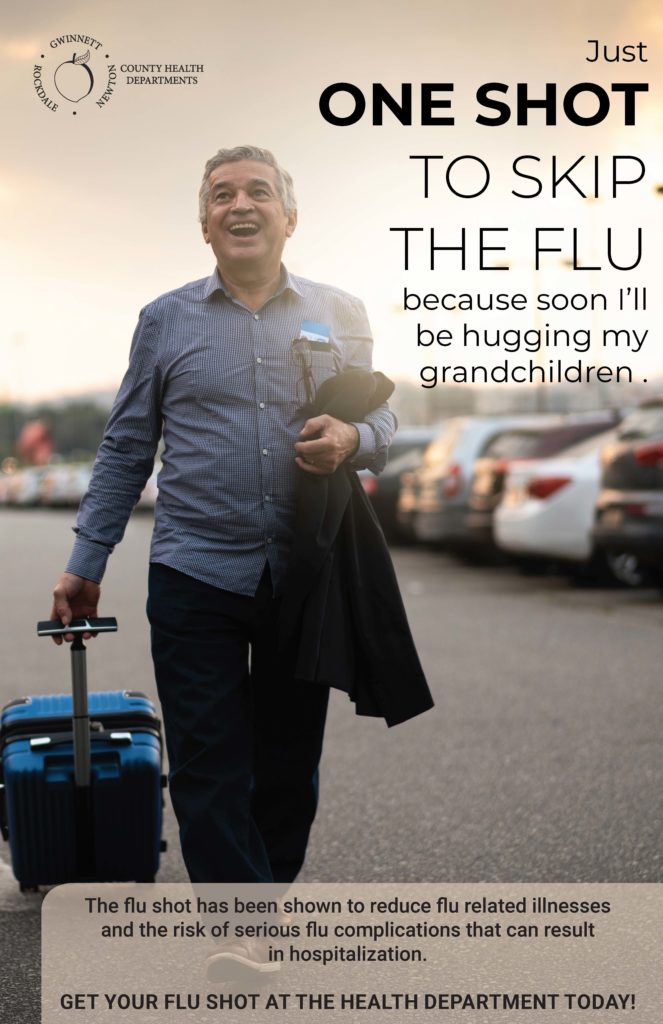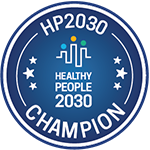Until further notice, all Gwinnett, Newton and Rockdale County Health Centers will operate on the following schedule: 8am – 5pm, Monday – Friday.
Gwinnett Community Health Improvement Plan – Town Hall
CALLING ALL RESIDENTS INTERESTED IN MAKING A DIFFERENCE IN THEIR COMMUNITY!
Thursday, March 12, 2020
4 – 7 PM (Drop in at any time!)
Rhodes Jordan Park Community Center
100 E Crogan St, Lawrenceville, GA 30046
Become change makers, community champions, and engaged citizens. Meet with community partners and services organizations.
Refreshments will be provided. Raffle prizes available. We’ll see you there!
For more information, email: Kimberly@gwinettcoalition.org
National Black HIV/AIDS Awareness Day
Get tested for free.
National Black HIV/AIDS Awareness Day (NBHAAD) is February 7. NBHAAD is a day to increase awareness about HIV among blacks/African Americans and encourage people to get involved in prevention efforts, get tested, and get treatment if they have HIV.
HIV testing is free at each of our health centers. Find a location near you and get tested today.
HIV diagnoses have fallen in recent years among black/African American women (25% decline from 2010 to 2016) and heterosexual men (26% decline). Diagnoses among young black/African American gay and bisexual men (aged 13 to 24) decreased 5%. This good news shows that the nation’s HIV prevention efforts are helping reduce HIV infections among some blacks/African Americans.
Although the latest data show progress, we must continue our efforts. In 2017, nearly 17,000 blacks/African Americans received a new HIV diagnosis. Blacks/African Americans accounted for 43% of all HIV diagnoses in the United States and 6 dependent areas, despite making up 13% of the U.S. population.
Each health center will be closed for one day in January in addition to state holidays
In January, each health center will close for one day to participate in employee training in addition to being closed for News Year’s Day and Martin Luther King, Jr.’s Birthday.
Our health centers will be closed on the following days:
State Holidays
All locations are closed.
New Year’s Eve
Tuesday, Dec. 31, 2019
All locations closing at 2 p.m.
New Year’s Day
Wednesday, Jan. 1, 2020
Martin Luther King, Jr.’s Birthday
Monday, Jan. 20, 2020
Employee Training*
Each location will be closed on one specific date.
Buford and Norcross health centers
Closed Friday, Jan. 10, 2020
Lawrenceville Health Center, Preventive Health Clinic, and Gwinnett Environmental Health
Closed Friday, Jan. 17, 2020
Newton and Rockdale health centers and Newton and Rockdale Environmental Health
Closed Friday, Jan. 31, 2020
*Please visit another location if you need services on any of these days.
We appreciate your patience on these days. Regular hours resume the following week.
Holiday Hours – 2019
The Health Department wishes you and your family a happy holiday season!
All locations will be closed:
- Friday, December 20
- Tuesday, December 24
- Wednesday, December 25
- Tuesday, December 31 – All locations closing at 2 p.m.
- Wednesday, January 1
Between Monday, December 23 and Friday, January 3 all health centers will be open (excluding holidays) from 8 a.m. to 5 p.m., including Fridays.
We will resume normal hours of operation beginning Monday, January 6.
Prepare for Sneaky Winter Hazards
In late January 2014, snow and ice paralyzed north and central Georgia, leaving thousands of motorists stranded in their cars. If you get stuck in your car or home this winter, are you prepared?
That’s the question we are asking our community this week during Georgia’s Winter Weather Preparedness Week December 2 – 6.
Learn how to prepare yourself for the upcoming season to protect your family and yourself in the event of a winter storm.
It’s Not Too Late to Get Vaccinated Against the Flu!
It’s that time of year again — flu season. As family and friends are gathering for the holidays, flu activity is increasing. Get a flu vaccine now if you have not gotten vaccinated yet this season.
There are many reasons to get a flu vaccine. Flu vaccination can reduce your risk of flu illness, doctors’ visits, and missed work and school due to flu. Even if you are vaccinated and still get sick, flu vaccine can reduce the severity of your illness. Flu vaccination also can help protect women during and after pregnancy and protect the baby born to a vaccinated mom for several months after birth. Flu vaccine also has been shown to save children’s lives, prevent serious events associated with chronic lung disease, diabetes and heart disease, and prevent flu-related hospitalization among working age adults and older adults. Getting vaccinated isn’t just about keeping you healthy; it’s also about helping to protect others around you who may be vulnerable to becoming very sick, such as babies, older adults, and pregnant women.
It’s not too late to get a flu vaccine to protect yourself and your loved ones this flu season! Visit your local health department to get your flu vaccine today.
One Shot to Skip the Flu
Get your flu shot today at your closest location!
Flu season has started, and Gwinnett, Newton and Rockdale County Health Departments is ready to vaccinate residents and businesses. We are kicking off our campaign to fight flu this year: “One Shot to Skip the Flu.” CDC and the Health Department recommend everyone age six months and older get an annual flu vaccine as early in the season as possible. The Health Department is targeting each age group to promote widespread vaccination.
“The flu shot is the most simple and effective way to protect you and your family from catching the flu,” said Dr. Audrey Arona, district health director and CEO of Gwinnett, Newton and Rockdale County Health Departments. “Just one shot can lower the risk of illness so that your children can stay active, so that parents can save their paid time off, and so that our seniors can avoid complications.”
Influenza, the virus that causes the flu, sickens thousands of residents and workers in Gwinnett County each year, leading to missed days at school and work. In severe cases, flu can also result in hospitalization. Each year, the flu shot gets an update to protect against new strains of influenza, which is why it is essential to get the vaccine annually. It can take up to two weeks for an individual to receive full immune protection from the vaccine, so it’s best to get the shot early before flu activity increases. The flu vaccine also helps protect those who are at risk of complications if they catch the flu. It has also been shown to limit the severity of flu for those who get vaccinated but still get sick.
“Flu can cause a tremendous increase in work or school absence that can span up to a couple of weeks,” Dr. Arona said. “Between promoting flu vaccination and reminding sick employees and students to stay home, we can limit the spread of flu this season and keep our families safe and healthy.”
Each Health Department location in Gwinnett, Newton and Rockdale Counties is fully stocked with flu vaccine, including the quadrivalent for broader coverage of flu strains and the high-dose for those 65 and older. Most insurances cover the vaccine.
The Health Department is also working with local businesses and schools to provide onsite flu clinics for their employees. Health Department staff set up at the company to conveniently administer immunizations.
More Information
What Types of Flu Shots Are Available?
The regular flu shot is an option for people 6 months and older. High-dose vaccines are specifically designed for people 65 years and older. Our immune systems become weaker with age, which places us at greater risk of severe illness from influenza. The high-dose vaccine has a higher amount of antigen than what is contained in regular flu shots.
How Much Does It Cost – and What Insurance do You Accept?
- The seasonal flu vaccine for adults is $30
- The seasonal flu vaccine for children (VFC) is $21
- High Dose flu vaccine is $65
For payment the Health Department accepts cash, debit cards, credit cards, Medicare, Medicaid, and several private insurance plans.
How can I set up an onsite flu clinic for my business?
If you would like to schedule a vaccine clinic for your employees, send us an email for more information, availability and pricing.
One Shot to Skip the Flu
Click below to view our posters. Feel free to download and share at your business, church, or community center.
Early Detection is the Best Protection!
Although Breast Cancer is leveling out in the United States, a closer look at the state of Georgia shows that breast cancer is still relatively higher than the U.S. rates and Georgia has an increased number of deaths from breast cancer. Given the number of breast cancer screening methods available (e.g., self-examination, clinical breast exam, mammogram, and breast ultrasound), more efforts are being done to provide access to care. Here at the Gwinnett, Newton, and Rockdale County Health Departments (GNR Health), our trained providers screen for breast cancer and make sure you get the linkage to care you need. Just last year, the BCCS Program provided clinical breast exams and mammograms to over 2200 women!
Every October the GNR Health observe National Breast Cancer Awareness Month to raise awareness about the importance of early detection of breast cancer. Our breast and Cervical Cancer Program (BCCP) is helping to ensure that women across our counties have access to regular screenings.
So throughout the month of October, show off your pink and tell the women in your life how important yearly screenings are to their health. For more information on the Breast and Cervical Cancer Screening Program, call or visit one of our health centers.
Helpful Links
Severe Pulmonary Disease Associated with E-Cigarettes
Twenty-five states have reported more than 200 possible cases of severe pulmonary disease associated with the use of electronic cigarettes (e-cigarettes).
What is added by this report?
Based on available information, the disease is likely caused by an unknown chemical exposure; no single product or substance is conclusively linked to the disease.
What are the implications for public health practice?
Until a definitive cause is known, persons should consider not using e-cigarettes. Those who use e-cigarettes should seek medical attention for any health concerns. Clinicians should report possible cases to their local or state health department.
Read the current report: https://www.cdc.gov/mmwr/volumes/68/wr/mm6836e2.htm?s_cid=mm6836e2_w


